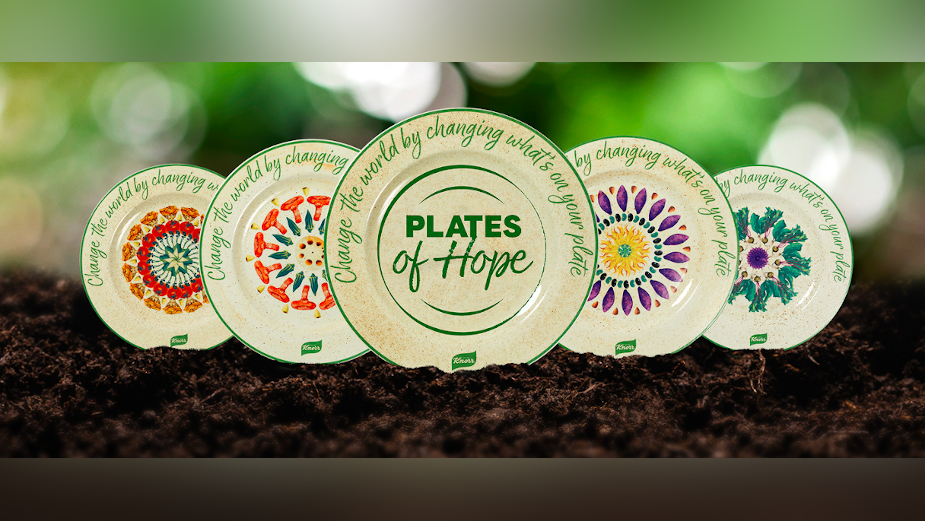
MullenLowe and Knorr Bring World Earth Day to Life Through Plates of Hope

Today, MullenLowe in London shares uplifting imagery from purposeful school activation, spearheaded by Unilever’s Knorr. This activation forms part of Knorr’s ongoing global platform Eat For Good to communicate their purpose – to reinvent food for humanity by being healthier for both people and the planet – with the next generation.
To shed light on the global concern over infertile and degraded soil, MullenLowe secured partnerships with two schools, Upminster Infant School and Saffron Walden County High School, to encourage children aged 6 to 12 to engage with Knorr’s Future 50 Foods, nutritious foods that have a lower negative environmental impact, via a series of activities.

In collaboration with the World Soil Museum, Knorr have created Plates of Hope which are made using damaged soil from different parts of the world that used to be fertile, but due to intensive farming practices and consequences of climate change can no longer productively grow food. These plates were sent to the schools, alongside various seed packets and a booklet delving into Knorr’s Future 50 Foods. The booklet was used to help children understand how the food we eat impacts our planet. The children then planted the seeds in the school gardens to help restore our earth, the theme for this year’s Earth Day.

The plates serve as a reminder to us that many of the foods we eat and the ways they are grown are damaging our planet. They are also a symbol of hope. Hope that we can change the world by changing what’s on our plates by choosing to eat a more diverse, plant-focused diet.
April Redmond, global brand vice president, Knorr said, “The Plates of Hope are made from degraded soil that can no longer grow any food, but by changing what we put on our plates, we can save our soil for future generations. Giving schoolchildren the opportunity to learn about this is especially significant on Earth Day. A day where we can all commit to making small changes that help restore our earth. These kids are not only learning about how to make better food choices, but also about how those choices impact the land.
This is all part of our ambition to help people Eat for Good. As a global brand, we believe we have bigger role to play by encouraging people to learn about healthy, sustainable, and delicious meals that not only benefit themselves but also our planet.”

Alex Okada, global creative director at MullenLowe London said, “The soil crisis is an invisible but urgent problem that we all should be aware of. We’ve already lost more than half of our farming soil, and it takes thousands of years to produce new rich soil. 75% of all food the world consumes comes from three crops and five farm animals. This lack of variety is one of the main causes of the problem. Big monocultures, unsustainable farming and excessive meat consumption are all connected to our dietary habits. So, we had the idea for Plates of Hope’ as our symbol, which is at the same time showcasing the problem and the place where the change must happen. Taking these plates to schools on Earth Day seemed like a fitting occasion to help the next generation of Eativists change the world by changing what’s on their plates.”



















